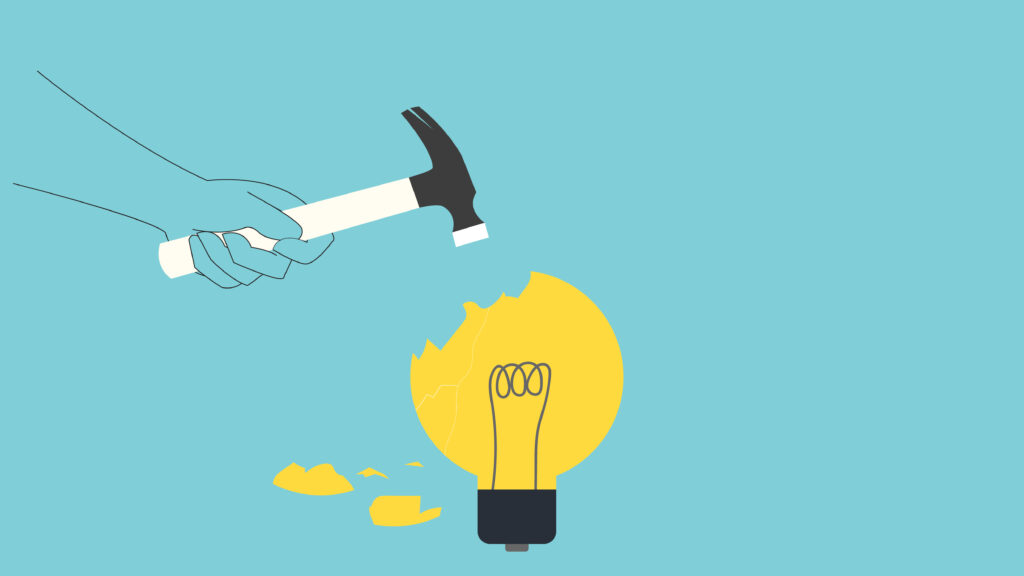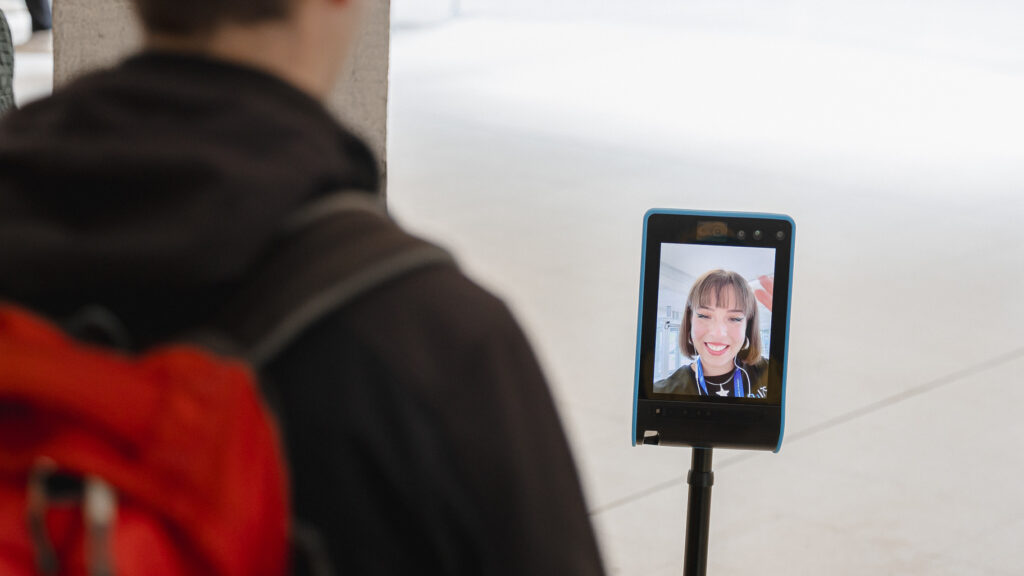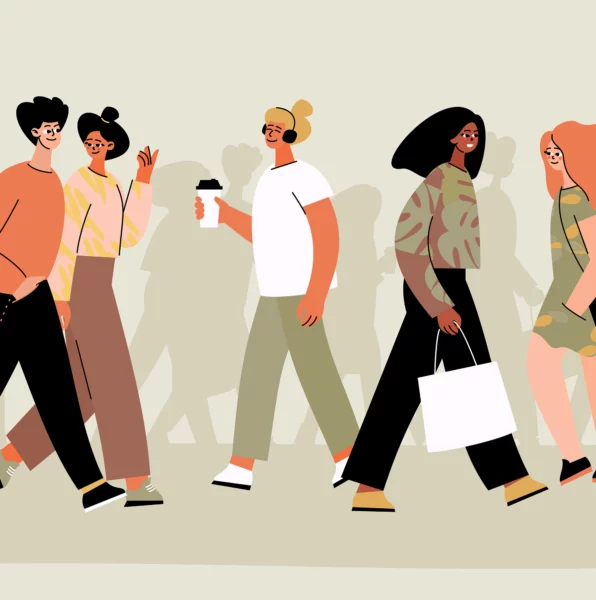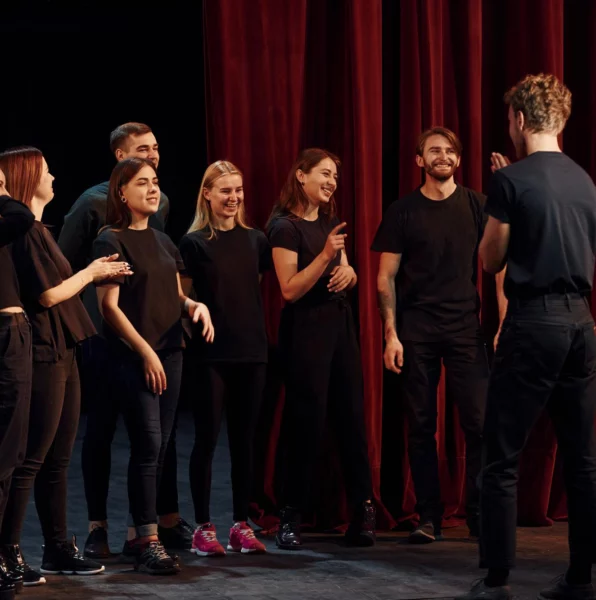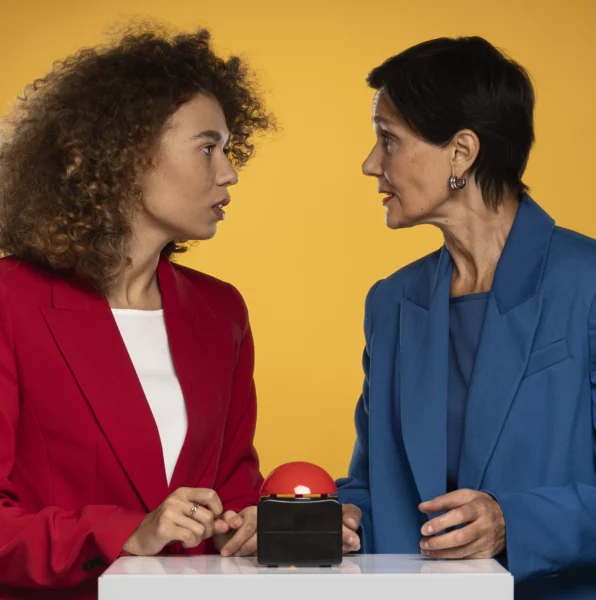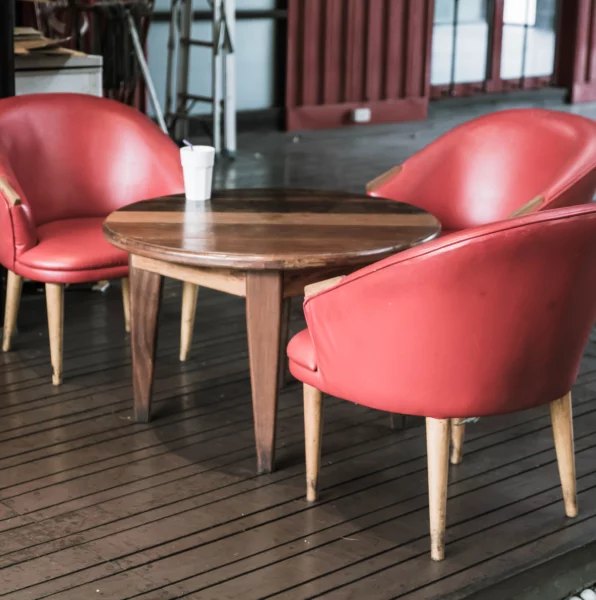Microbiologist Siouxsie Wiles helped lead New Zealand through the pandemic. Then the death threats came, followed by a legal battle over whether her university had done enough to protect her. Now, the court has delivered its verdict.
“Instead of fixing their policies, they chose to fight me”
In 2020, microbiologist Siouxsie Wiles became one of New Zealand’s leading public voices on Covid-19. She appeared regularly in the media and helped explain topics like vaccination, mask use, and lockdowns. Her work – including a widely shared “Flatten the Curve” graphic – gained international recognition.
But Wiles also became the target of sustained online harassment, including death threats. She later filed a legal complaint against her employer, the University of Auckland, arguing that it had failed to protect her adequately.
A court hearing began in November 2023 and highlighted the extent of the threats she had faced. In mid-2024, the Employment Court ruled in her favour. It found that the university had breached its obligations around health and safety and employment protections.
After a years-long legal battle, the University of Auckland has been ordered to pay you $205,000 in court costs. Looking back on the Employment Court process, what does the outcome mean to you?
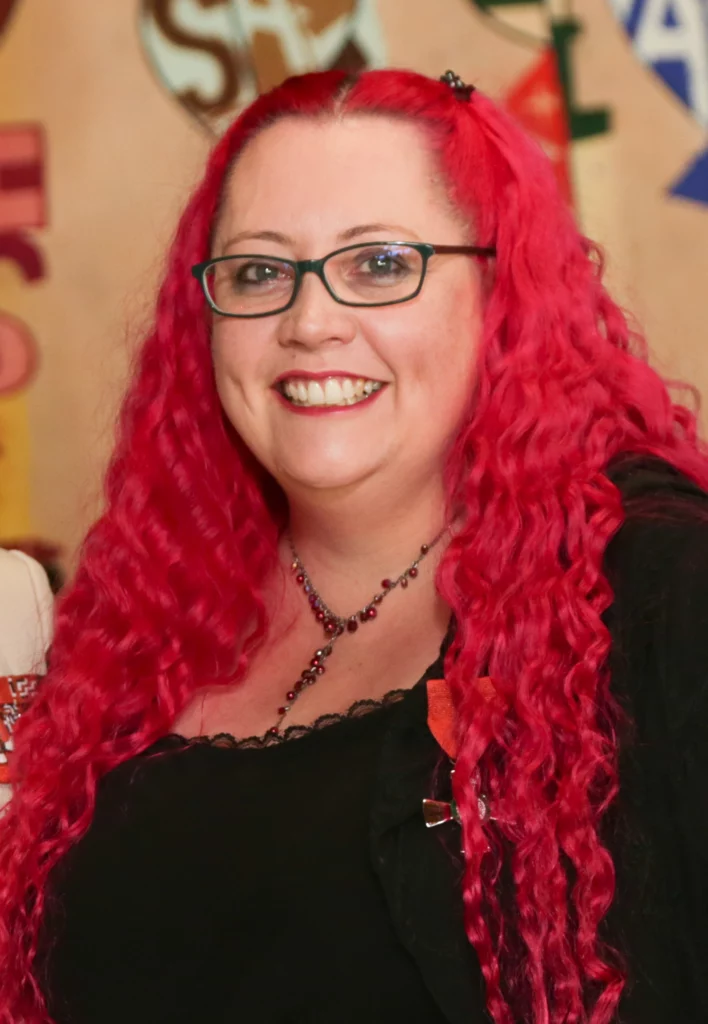
I’m delighted. The judge made it clear I was the winning party. The university paid just a couple of days before the deadline. So, it feels like it’s finally over.
It’s the end of a very long process. I first started being harassed in January 2020. I told my employer about it in April 2020 and started asking for support. Then I kept asking. I had meetings, kept asking, more meetings, all while everything was getting worse.
What was your experience trying to get support from your institution?
I was asking for support from our Staff Risk Intervention Team – referred to as SRIT. The harassment was taking lots of different forms: emails, comments on social media, but also external people complaining to the University’s Vice-Chancellor about me.
Over time I came to realise that some SRIT members didn’t believe online abuse was important. They didn’t see it as something that caused harm. Or something that could come into the real world. There was an attitude of, “Well, it’s your fault because you’re the one using social media.” There was so much victim blaming.
When I needed their support, I found SRIT completely unfit for purpose. My colleagues and I – there were three of us – spent more than 18 months trying to get them to understand what we were experiencing, how it was getting worse, and that there were things our employer could do to support us.
After 18 months of trying, we filed personal grievances (note: an employee formally complains about unfair treatment by their employer). We said we’d lost confidence in SRIT. We asked the Vice-Chancellor to meet with us. She never did. And that’s when things moved into legal territory. All we wanted was for the University’s external harassment policies to work. But it ended up becoming this astonishing situation where, instead of fixing their policies, they chose to fight me.
What gave you the resilience to pursue the case all the way until now?
When it became public that I was taking legal action, a lot of people got in touch. People saying they had taken legal action too but had to give up because they ran out of money. That made me think: “We have to keep going.” The University can’t keep using this tactic. Just outlasting people to silence them. With the support of my amazing family and friends, I kept going. But I was also really privileged to be able to do that.
One of the core questions raised during the case was whether science communication is part of an academic’s job. Why do you believe it is?
As publicly funded scientists, the public has a right to know what we do with their money. There is a real concern that when scientists aren’t open about what they do, it creates a vacuum that gets filled with dangerous misinformation. Transparency builds trust.
Over time I learned how to communicate well, so how to simplify without distorting. Eventually, I became “that microbiologist” journalists knew they could call. Someone who could explain complex things in ways people could understand.
That’s why it was so shocking when the University argued that science communication wasn’t part of my job. We’re funded by taxpayers. We’re constantly being asked to show our impact. But how can our work have an impact if we’re not allowed to talk about it? Communication is part of academic citizenship. It’s part of serving society.
It’s part of the legislation in New Zealand, isn’t it?
Indeed. The Education Act says universities must be the “critic and conscience of society.”
And I saw myself fulfilling that role. I even won the Universities New Zealand Critic and Conscience of Society Award. The institution celebrated me for it, until things got hard. Then they wanted me to stop. And the moment they asked me to pull back? That was during the Covid vaccine rollout! The time when the public most needed clear information.
The university also claimed that because science communication wasn’t part of my formal job, I was doing it in a private capacity, so they had no responsibility for my health and safety. Thankfully, the courts were very clear: that’s not how it works.
The court ruling acknowledged that your public communication work was part of your job. Do you think this sets a precedent for other researchers around the world?
Yes, the ruling was significant. It wasn’t just a win for academics. The judgment basically said: if your staff have a public-facing role, you, as their employer, have a responsibility for their health and safety. That applies to communication professionals, public servants, anyone with a similar role. I’m proud my case helped clarify that.
Would you still encourage researchers to engage with the public?
Absolutely. We see institutions all around the world talking about impact. But you can’t achieve that if you’re not willing to engage with communities. To understand what their needs are, and to translate that research into policy, or other real-world outcomes.
That’s not to say everyone must do it, because it is a skill. And you have to get good at it. I’ve been telling scientists around New Zealand for years: science communication is an important skill so learn to do it when there isn’t a crisis. Because when there is a crisis, that’s a really hard time to start learning. Then, when the crisis comes, you’re ready to step up.
But when people do step up, they need a cloak of care around them. They need to know that if things get tough, there are systems in place to support them.
What should be included in these support systems?
Things like publicly supporting the academic, so it’s clear to the harassers that the person they’re targeting is backed by their institution. Providing training: how to manage the fight-or-flight response, how to deal with stress, what to do in case of an in-person altercation. One of my expert witnesses explained that in those situations, people can forget their own name, or how to operate their phone – they’re just in such a panic. But if you’ve been trained for those scenarios, you can respond much better if something happens.
There were loads of things the University of Auckland could have done. But as it was, I was facing increasingly unhinged forms of harassment from every direction, while at the same time having to fight this internal battle with my own employer. And honestly, I think that part was more harmful than the external harassment. Because these were the people who were supposed to have my back. And they didn’t.
You were being doxxed, threatened, and harassed both online and offline. Can you talk about how that affected you?
It was just awful. And the harassment women get is quite different to what men experience. Women are much more likely to be attacked over their credentials and their appearance. For me, it was constant commentary about my hair, my weight… People were leaving me voice messages, making videos about me. You have to grow thick skin, I suppose, and try to tell yourself not to let it hurt you. But it does. It chips away at your confidence.
I became more of a hermit, partly because I was scared. I’m very conspicuous with my pink hair, so I was always worried someone might recognize me and try to harm me. There were a few incidents where people shouted at me in the street. It wasn’t constant, but the threat always felt real. There was this baseline anxiety, especially when I was out alone.
How did you cope?
I stopped reading most of the emails and messages. I learned to skim very quickly and just delete anything that looked threatening.
Thankfully, there were people online who wrapped themselves around me. Strangers, who decided to help. Some were monitoring Telegram groups or Facebook pages, and they’d let me know if something serious had been posted. The harassment wore me down, little by little. I’m not the same person I was five years ago.
What’s helped is that the vast majority of New Zealanders have been really supportive. People often stop me in the street to thank me. Most people want to say they appreciate what I did during the pandemic, and that they’re angry on my behalf. Some of them have seen the documentary about what I went through, and they just want me to know they care. That really does mean a lot.
It reminds me that the people who wish me harm are a tiny minority. Loud and harmful, yes, but still a small group.
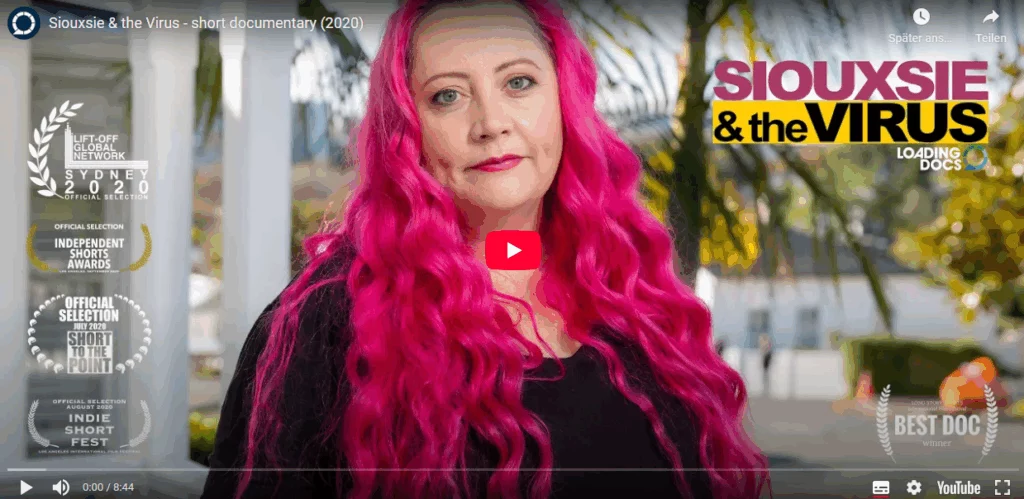
What advice do you give other scientists who are facing hate and hostility?
My advice is more to institutions than to individuals. I think institutions have to understand that this happens, and they need to have good processes and policies in place. So, people can report what’s happening and then be monitored and supported. There needs to be a cloak of care wrapped around these people.
And for the science communicators, who are being attacked?
For individuals, I’d say: this isn’t your problem. It’s a societal problem. And society needs to deal with it. You are the victim of something much larger, and you deserve support. Don’t feel like you have to go through it alone.
It’s important to form networks, so people can support one another and no one feels like they’re the only one going through it. Knowing you are part of a network, and that your institution supports you, is critical.
And – if you can – speak to someone like a therapist or a counsellor. Even if you’re not in physical danger, this kind of hostility is still a mental health risk. It will impact you. Talk to someone about it. Don’t suffer in silence.
Has this whole experience changed how you feel about doing science communication?
Yes. Before the pandemic, I used to be a science commentator on the radio. I also wrote a newspaper column. About a year ago, I gave those up. I just lost my spark for it. One of the awful things about all this is the “chilling effect”. People step back and go, “Okay, I’m not going to say anything anymore.” And I have to admit, that’s been me. I have stepped back a lot. But that’s also because I was utterly burnt out. I’m trying to take time to recover, and it’s taking a bit longer than I thought it would.
I haven’t done many interviews in the past year or so, especially around COVID. When people ask me for comment now, I usually decline. That’s partly because I’ve been focusing on recovering and putting my energy into my research.
I’m moving toward more personal, community-based communication, rather than relying on social media. Honestly, I don’t think those platforms are useful anymore for science communication. The algorithms aren’t in our favour. They don’t promote trustworthy content and they’ve become really unpleasant places to be. To counter misinformation and disinformation, I think we need much more face-to-face, relationship-driven engagement. That’s where I want to go: building real, personal connections with communities, even if it’s on a smaller scale.

